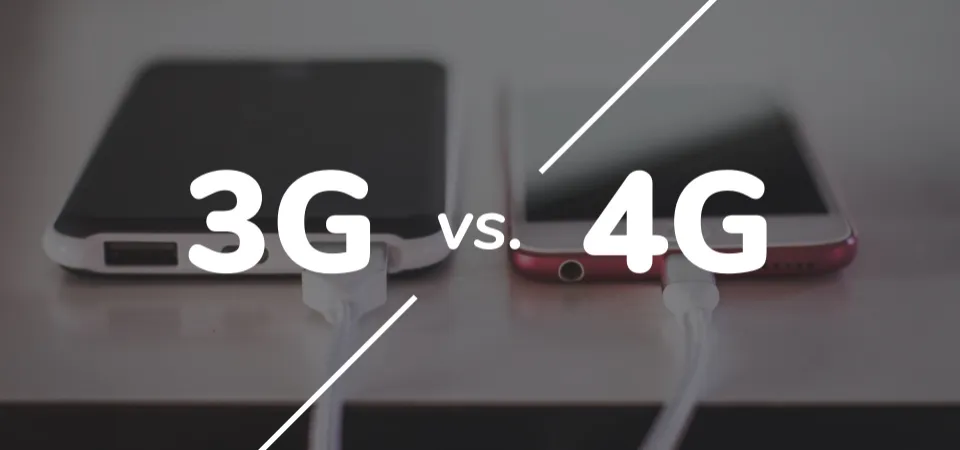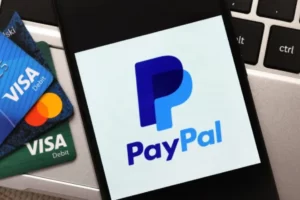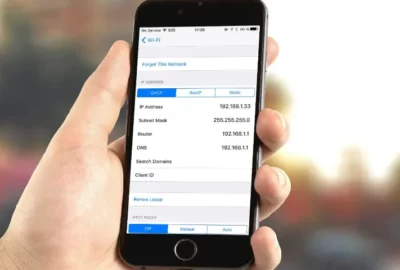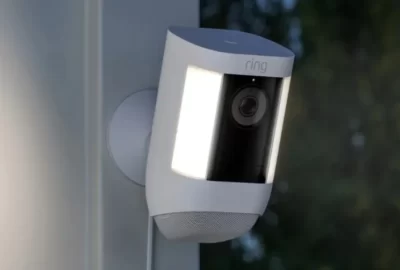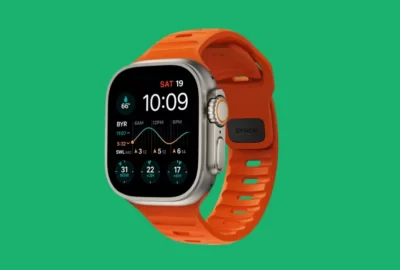3G Vs 4G: What Are the Differences?
You need to choose a data network type if you’re purchasing a new smartphone. We will differentiate 3G Vs 4G on the basis of technology compliance, rate of information transfer, types of connections and many more.
3G and 4G are standards for mobile communication. Better information transfer and broadband services than those offered by 2G (second generation) are permitted by mobile service providers thanks to 3G technology.
The 4G LTE technology, on the other hand, delivers an even better capability for a faster, jury-rigged, and more stable experience for mobile broadband that permits various connections at a time.
There is a major difference between 3G Vs 4G technology, keep reading and find out more.
What is 3G Technology?
The 3G, third-generation technology, is a standard for mobile telecommunication. The standards lay out the requirements for data transmission, such as using the airwaves for voice and data transmission.

The 3G is the successor of 2G, and it delivers a comparatively better broadband capacity and supports a larger customer base for data and voice at a much lower incremental cost.
The 3G communication performs voice communication via circuit switching and data communication via packet switching.
For more 3G information, read the following posts:
- Can I Stream Netflix With 3G?
- Can I Stream Twitch With 3G?
- Can I Stream Youtube With 3G?
- When Was 3G Introduced?
What is 4G Technology?
The abbreviation 4G stands for fourth generation. It is basically a venture for developing and incorporating the 3G, 2G, Wireless LAN (WLAN), short-range systems, and fixed wire systems into a broadcast of a single network that is not only coherent and consistent but also functional.
To put it simply, 4G is the 3G technology’s extension that offers a variety of capabilities as outlined in IMT by the International Telecommunications Union (ITU). In order to support network interfacing, 3G technology has a number of features including flexibility, scalability, security, self-governance, and efficiency.
In addition to this, it also includes a number of new services that complement the ones already provided. The 4G technology comes with various customised services for multimedia, data, as well as voice at a very high data rate (this can go up to 500 Mbps).
4G also comes with some very advanced services compared to 2G and 3G, like gaming, 3D TV, online meetings, IP telephony, etc.
Difference Between 3G and 4G Technology

Compared to 2G, 3G technology enables mobile service providers to offer better information transfer and broadband capabilities (second generation).
On the other hand, the 4G LTE technology offers an even better capability for a quicker, more stable, and multi-connection-capable mobile internet experience.
We are contrasting the two terms in a table based on each of their distinctive qualities in an effort to make this topic more clear and more understandable.
| Parameters | 3G Technology | 4G Technology |
| Full Form | The term 3G is an abbreviation for third-generation technology. | The fourth generation of technology is referred to by the abbreviation 4G. |
| Maximum Upload Rate | Up to 5 Megabytes per second can be transmitted. | It can reach speeds of up to 500 Megabytes per second. |
| Maximum Rate of Download | A maximum download speed of about 21 Megabytes per second is provided by 3G technology. | Videos can be downloaded using 4G technology up to 1 Gigabyte per second, which is a significant speedup. |
| Switching Techniques | It makes use of packet switching. | It utilizes both message-switching as well as packet-switching techniques. |
| Range of Frequency | The 3G technology operates at a frequency that varies somewhat between 1.8 and 2.5 Gigahertz. | The 4G technology operates in a roughly 2 to 8 gigahertz frequency range. |
| Leniency | Horizontally, 3G technology is forgiving. | Both vertically and horizontally, 4G technology is forgiving. |
| Network Architecture | Wide-area cell-based networks are the foundation of 3G technology. | Cell-based for a large area and incorporating WLAN, the 4G technology’s network architecture. |
| Error Correction | The turbo codes are used by the 3G technology to perform error correction. | By concatenating the codes, 4G technology performs error correction. |
If you are interested in upgrading your phone from 3G to 4G, read on Can 3G Phone Upgrade to 4G.
Final Thoughts On3G Vs 4G: What Does It Mean for Me?
It doesn’t have to be overwhelming to learn about data connections. In fact, it’s quite simple – you choose your phone plan, and you either have 4G or you don’t.
If you’re in an urban area, chances are you do, but if you’re living remotely, 3G might be your only resource until 4G coverage is strengthened in your area.
There are other factors to consider when deciding on a phone plan, like price, inclusions and other perks. These are the factors that are most crucial when purchasing a mobile phone plan.
Whatever the local network technology, it’s worth comparing a number of different providers to determine which plan offers the best value for you.
Related Reading:
FAQs
Is 4G Really Better Than 3G?
4G is a newer technology that delivers much faster speeds, and supports more intensive mobile activity such as streaming. 4G can reach speeds of up to 50Mbps – 10 times faster than most 3G connections.
Is 3G is Fast Enough?
3G will probably work well for you if the majority of the time you use your phone is for talking and texting, and you rarely stream music or video while using a mobile network.
Does 3G Drain Battery Faster?
The 3G radio in your smartphone uses less battery power than the 4G radio. But 3G is also much slower at moving data.

